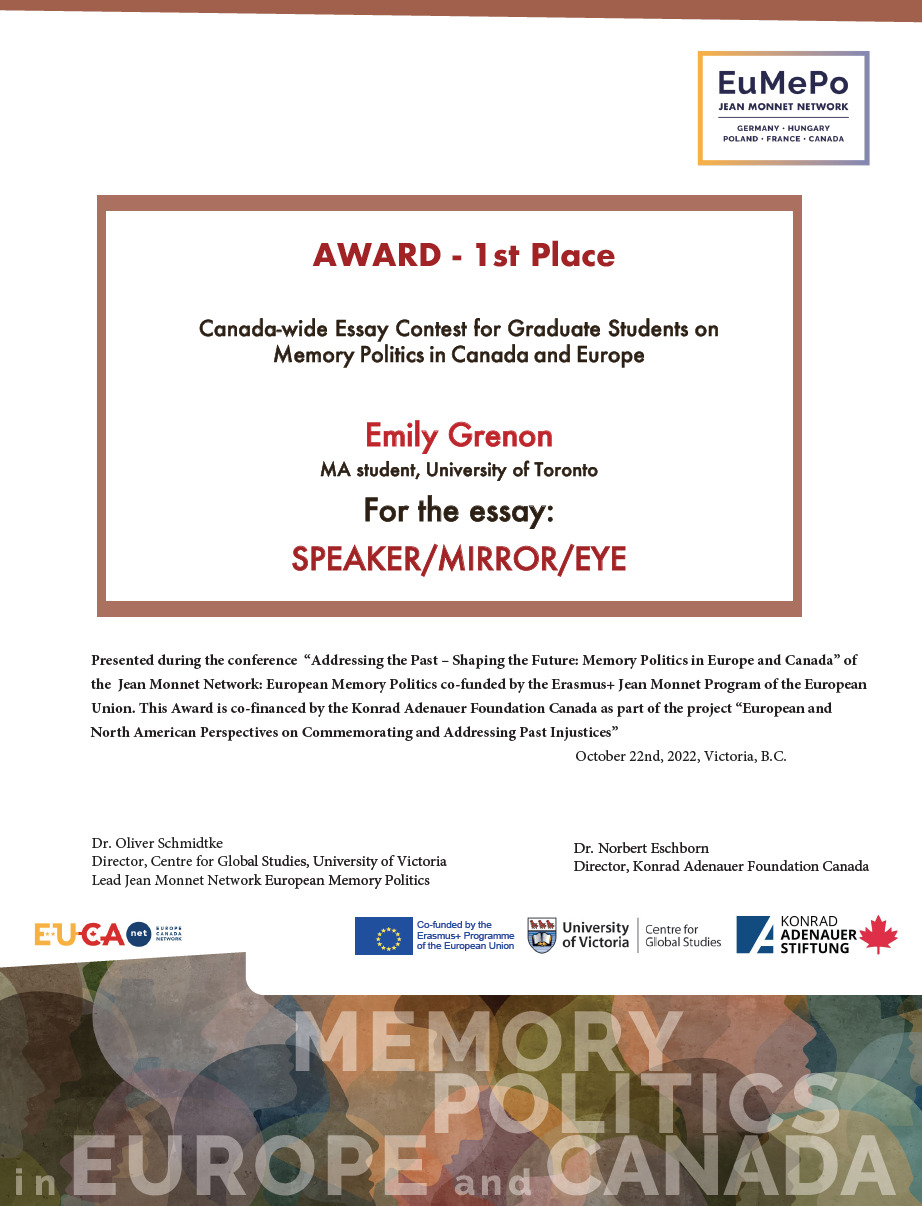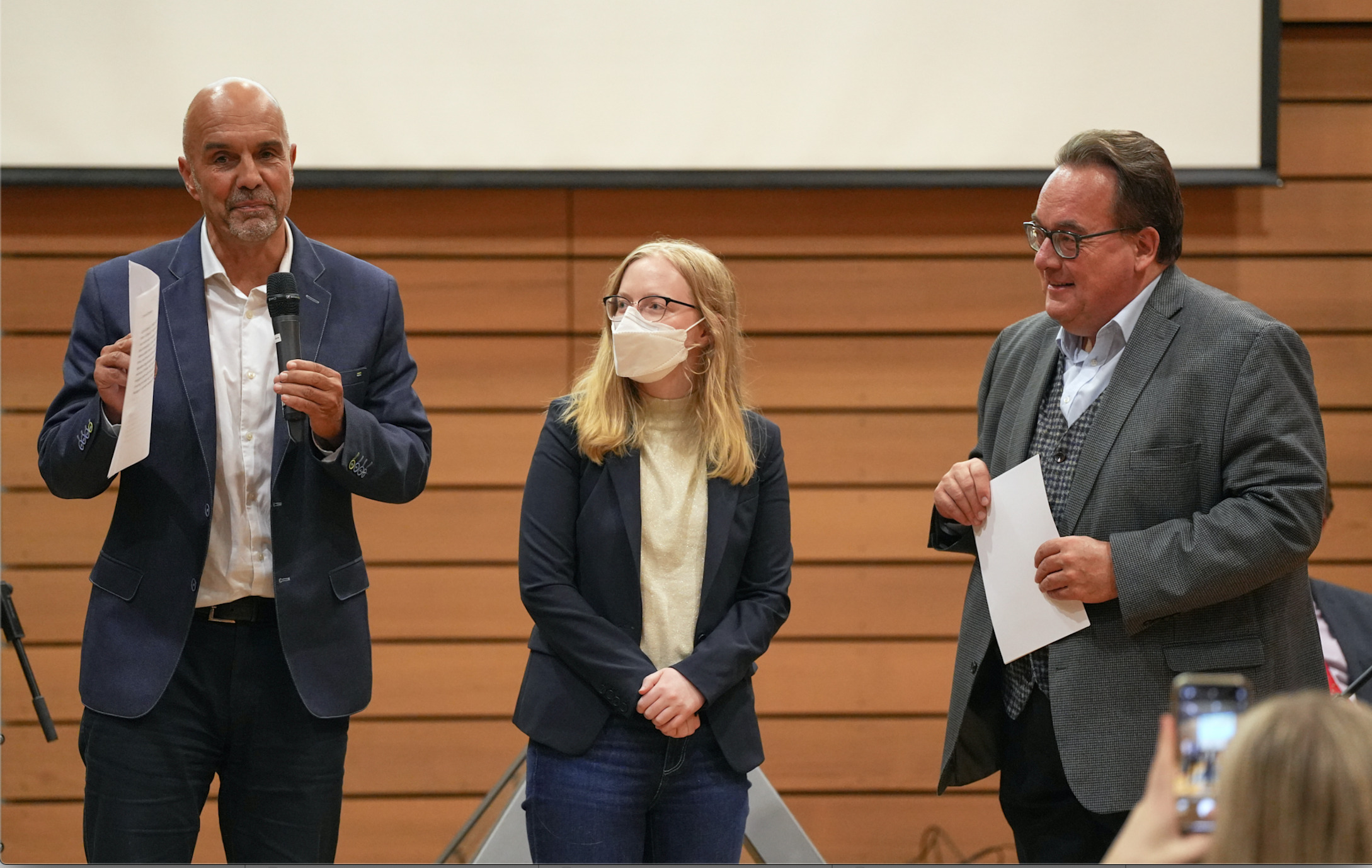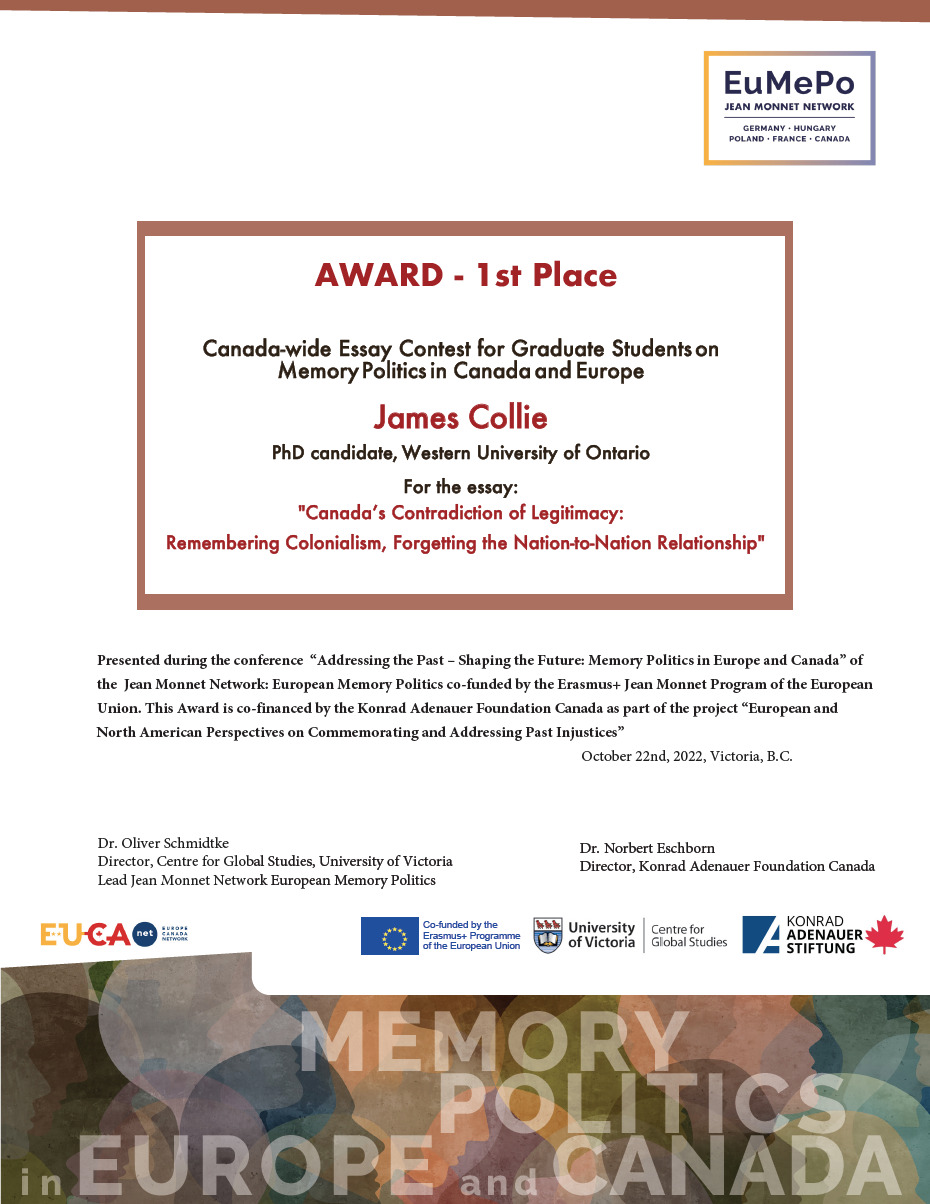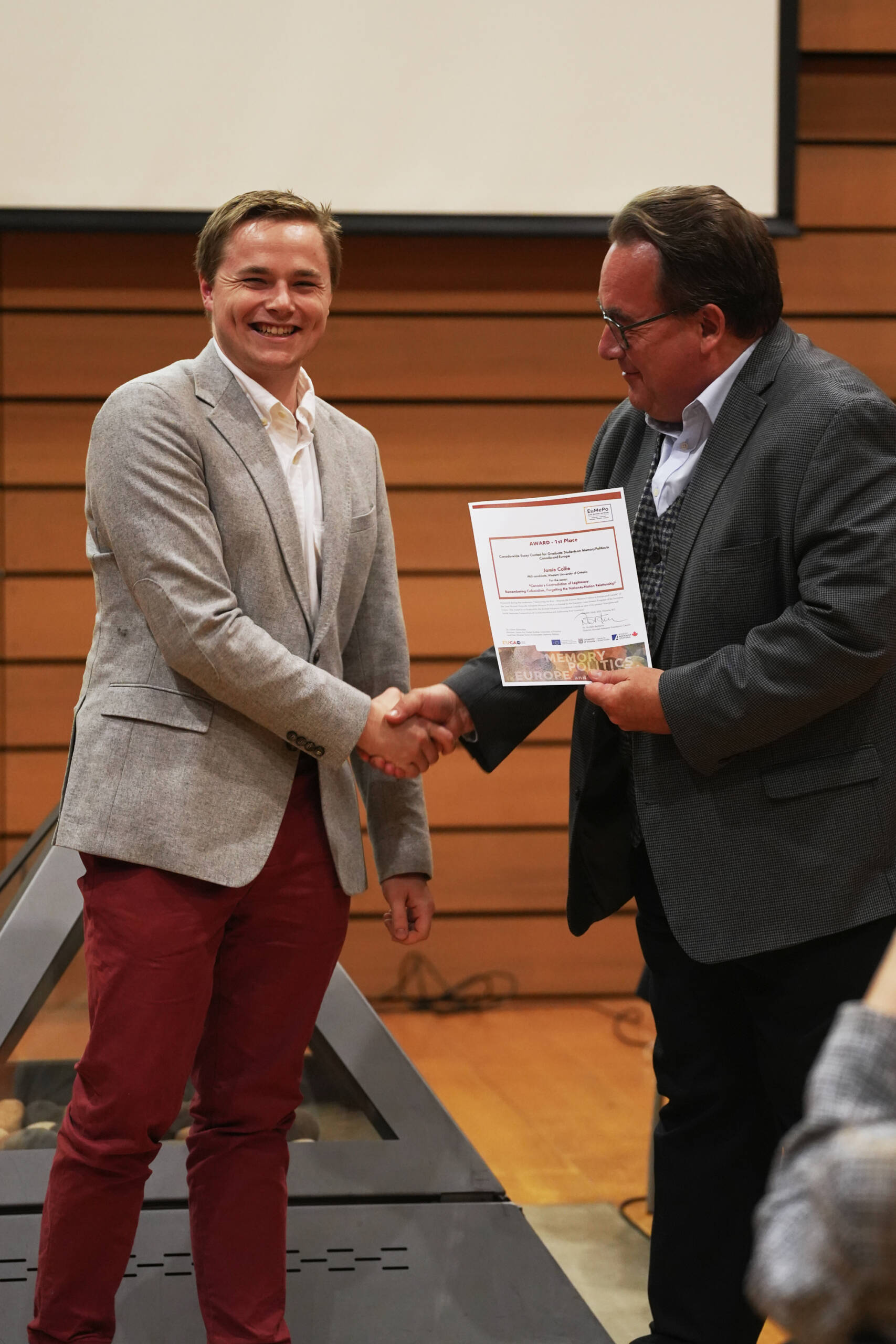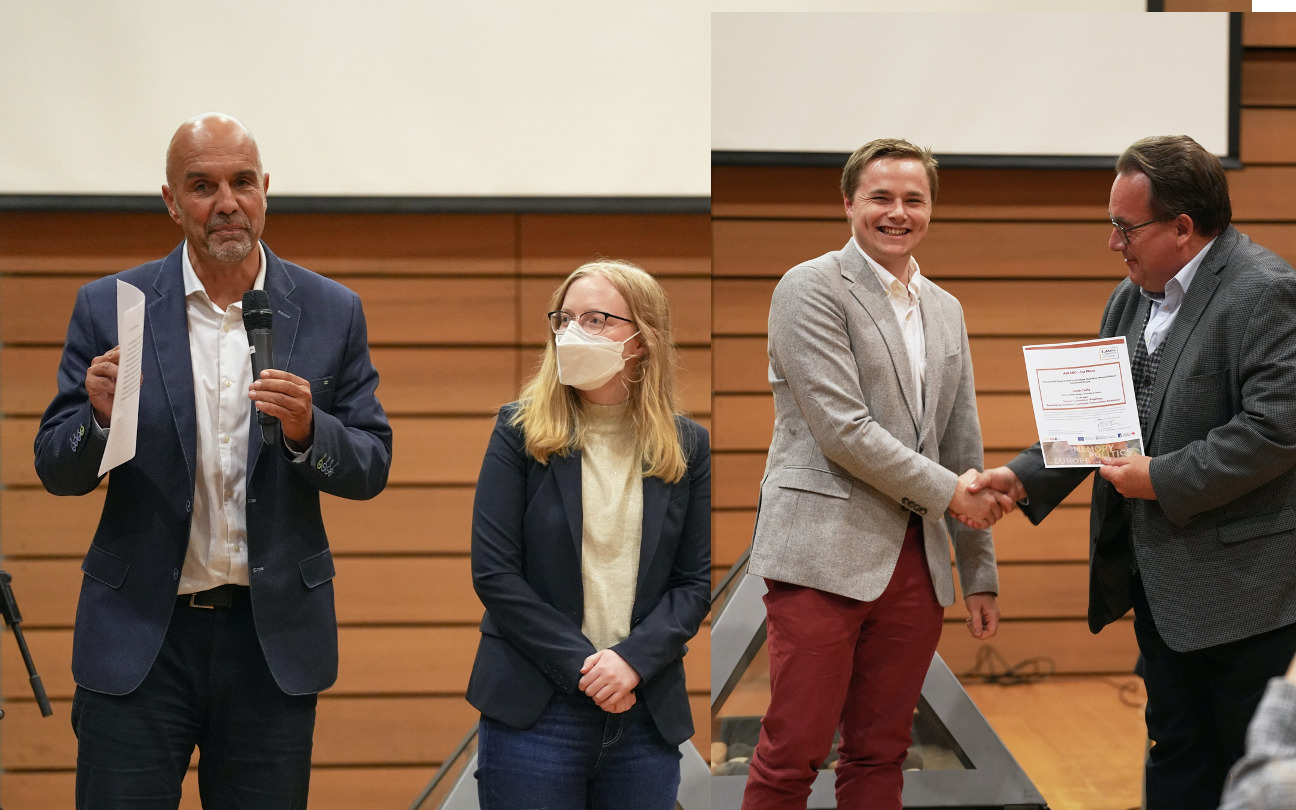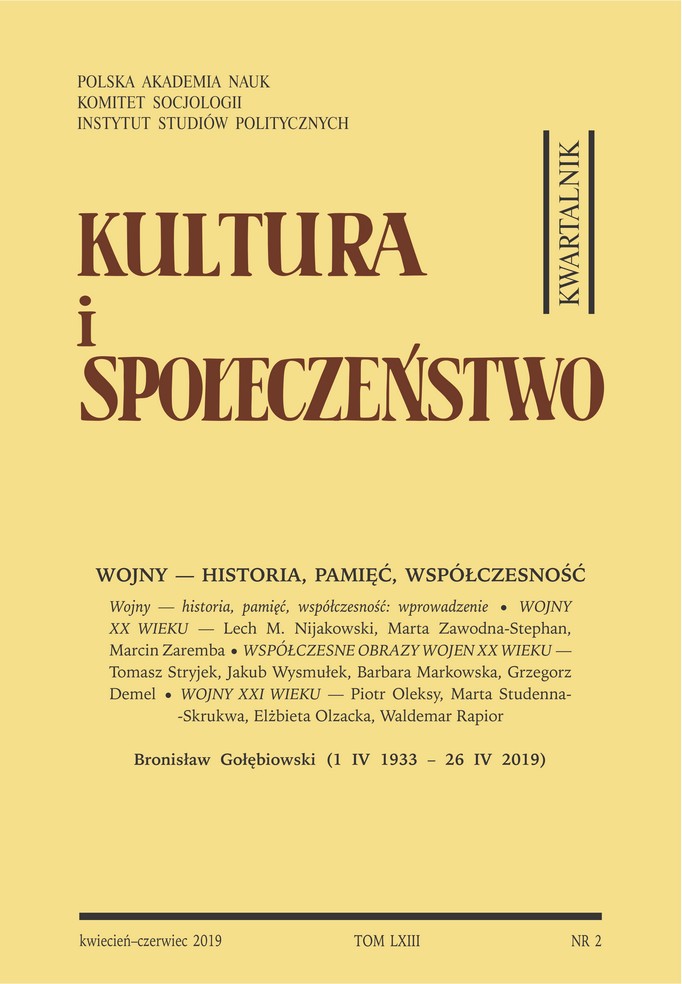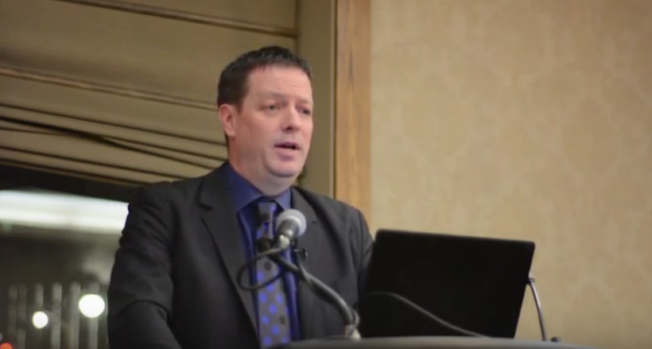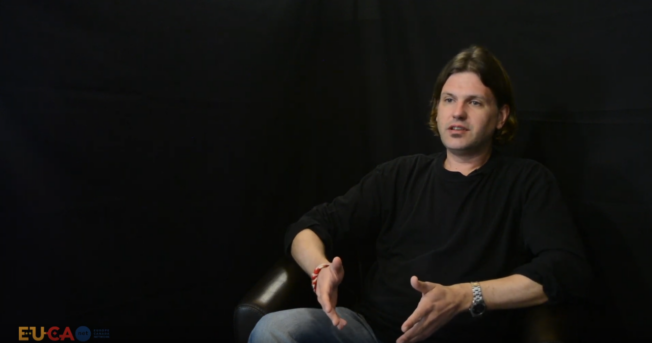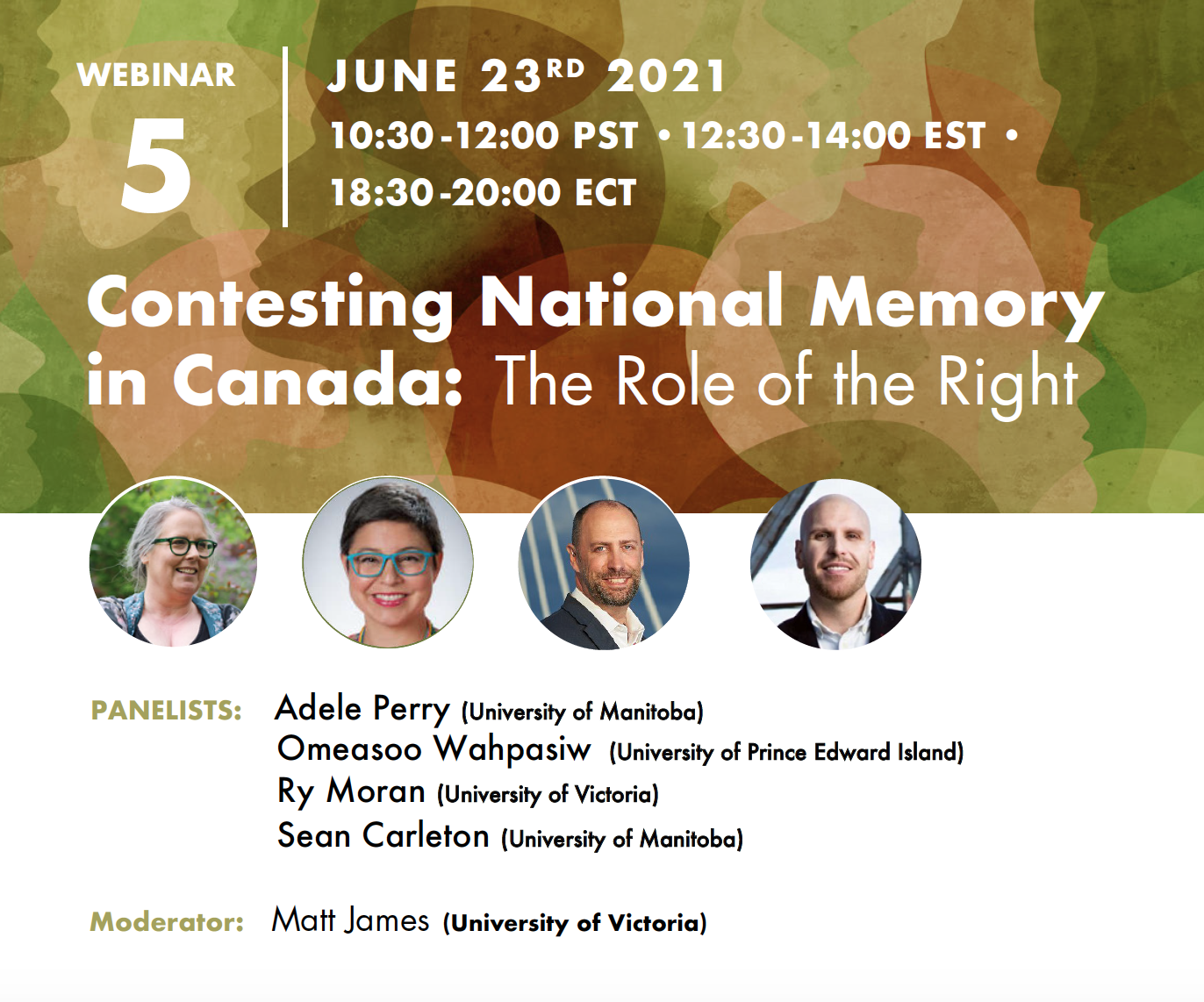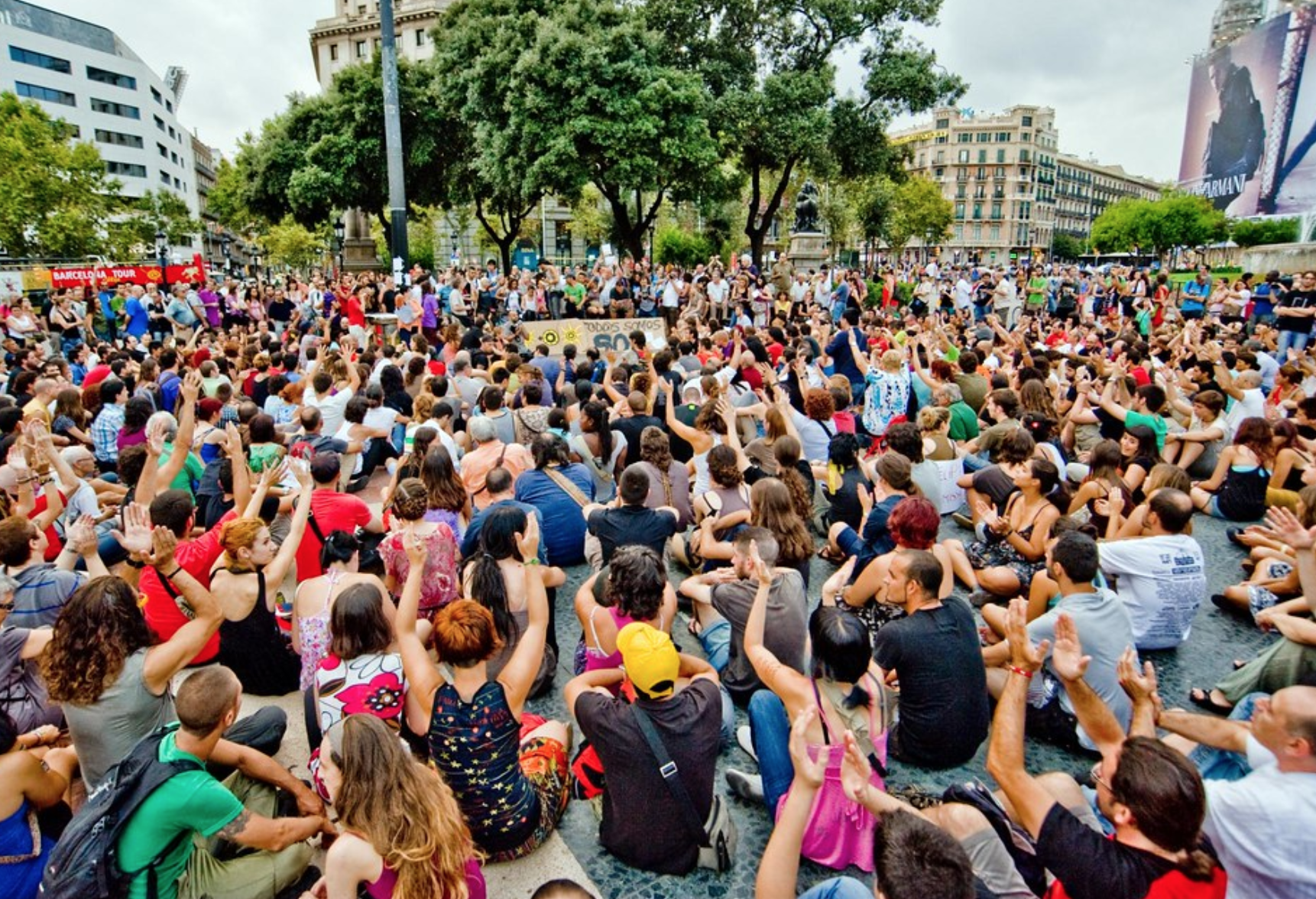1st Price Essay on Memory Politics goes to Emily Grenon and James Collie
Congratulations to the winners of the essay competition “Memory Politics in Canada and Europe”
Emily Grenon (MA candidate, University of Toronto) and James Collie (PhD candidate, University of Ontario).
Emily Grenon‘s essay “Speaker/Mirror/Eye” talked about Lázló Lakner’s 1960 painting “Seamstresses Listen to Hitler’s Speech”. According to Emily it “represents a Communist-era attempt to reconcile with Hungary’s role in the Second World War and complicity in the Holocaust, as well as a critique of silence after the fact. This painting was exceptional for its time, and the fact of its suppression and subsequent decades-long disappearance are illustrative of the same memory climate that it portrayed. “Seamstresses” engages both with historical and contemporary silences, creating an enduring critique that remains relevant in Hungary’s current memory climate”.
James Collie’s essay (PhD candidate of the University of Western Ontario) addressed “Canada’s Contradiction of Legitimacy”. It talks about Canada’s political culture and its crisis of memory . James writes: “On one hand, institutions and actors of the state actively disavow colonialism and commit to reconciliation with Indigenous nations (Canada, 2021). On the other, Canada has not addressed the colonial displacement of the legitimacy and autonomy of Indigenous political and legal orders. In short, Canada remembers colonialism, distances itself from it, and commits to renewed governance, all the while Canada suppresses the memory of the usurpation of Indigenous governance. Memory politics play an influential role in sustaining democracy and inclusion. How we remember legacies of injustice directly impacts how we react to the exclusions of today. Democracy is best sustained when unfair legacies and histories are made known to all; only then can a society move forward together. In Canada, this situation is both alike and unlike Europe. In both places, there is a need to accept troubling, unjust histories. In doing so, people then recognize the barriers that others face to contemporary inclusion within a democratic society. Canada, however, is unique in two important respects. The first reason is that the establishment of Canadian political legitimacy happened through the settler-colonial displacement of Indigenous political and legal orders. Therefore, Canada has a dual history of excluding people from its polity, but also this polity was established through the settler-colonial denial of Indigenous polities. The second factor is that the inclusion of Indigenous peoples in social, economic, and political institutions is not the only task; many Indigenous calls for justice go beyond inclusion and recognition within Canadian society, and rather for the recognition of Indigenous political and legal orders. Canadian democracy must then at once recognize historical barriers facing Indigenous communities and recognize that Indigenous nations demand the acknowledgement of their inherent political and legal autonomy as self-determining nations.”
The award winners were invited to the conference “Addressing the Past – Shaping the Future”, that took place on October 21-23 at the University of Victoria. They presented their essays during the “Graduate Student Panel” and were honoured by the director of the Konrad Adenauer Foundation Canada, Dr. Norbert Eschborn, and Prof. Oliver Schmidtke, the director of the Centre for Global Studies at the University of Victoria, during the main public opening panel on Friday, October 21st.
